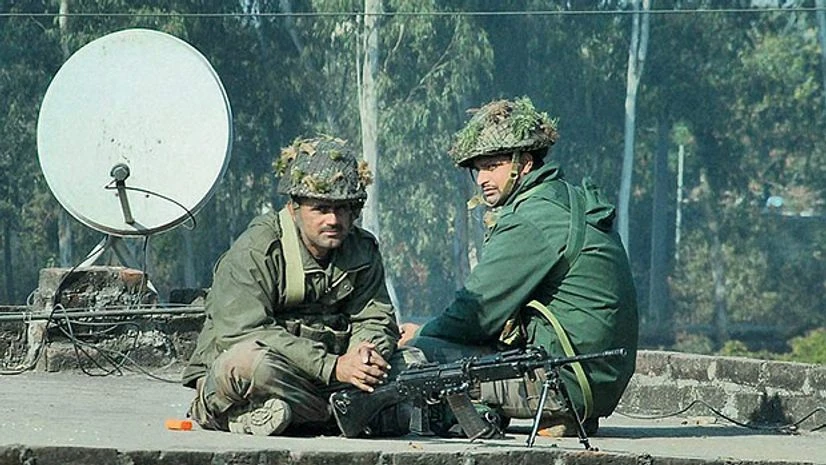The government today asserted the high casualties suffered by the security forces despite advance intelligence about an impending terror attack in Pathankot was "not a lapse" even as defence experts questioned the way the brazen assault was handled.
"I don't consider it a lapse at all. In such situations where weapons are there, some injuries and some deaths will happen on this side also," Home Secretary Rajiv Mehreshi told reporters here in the first official press conference, 36 hours after the attack on Indian Air Force base in Pathankot began.
While four terrorists were killed yesterday and operation was on to neutralise other two holed up at the base, seven soldiers including a commando each from the IAF and the NSG were killed while 20 others were left injured.
More From This Section
Former Western Air Command Chief Air Marshall P S Ahulwalia, who had commanded the Pathankot Air base during his service, said coordination between various security agencies "could have been better" to minimise causalities among security forces.
"The success or otherwise of any operation could be judged by the following -- whether the terrorists were able to achieve their objective, minimal causality to our own forces, no collateral damage and attackers being neutralised in optimal time frame.
"The terrorist were not able to achieve their objective and they could not reach their target. However, we have lost more men and this could have been prevented by effective coordination. And also that the time taken to neutralise the attackers is way too long," he said.
Many also questioned why the government did not divulge full details of casualty figures last night itself.
Though unconfirmed reports had said there were six casualties among the security forces, the defence ministry had only confirmed 3 martyrs.
It was only this morning that they revised the figure to six claiming that only three had died last night. However, it later transpired that the six had died yesterday itself.
Asked why the details of those killed were not made available yesterday, an IAF spokesperson said," There are procedures to be followed and first the next of kin of the deceased are to be informed."
Former RAW Chief A S Dulat raised questions about failure of security agencies in thwarting the attack.
"Generally intelligence agencies get the flak but here is a case when you had a pinpointed intelligence and still you could not make it. Why?" he said.
Dulat said the Pathankot operation had raised many
questions including those about the role of security forces who could not neutralise the terrorists fast.
"How can the terrorists enter so easily without getting noticed and that too with such a huge quantity of ammunition? Are the terrorist also paying their way through like the drug cartels? These questions need an early answer," he said.
Brigadier Gurmeet Kanwal (Retd) said it was "obvious" that there were lapses. However, he refrained from speaking further on the operation, saying more details should come out first.
However, he said that the attack showed that Pakistani army and the ISI were not on board with the civilian government when it comes to peace with India.
Kanwal said India should have a two-pronged strategy under which they should continue to talk to the civilian government there and also hit back hard at the LoC whenever there is conclusive evidence of Pakistani role in terror attacks in the country.
Nitin Pai, Director of The Takshashila Institution, tweeted saying, "Just don't know what to say about the response to #PathankotAttack. Numb."
Air Vice Marshall (Retd) Manmohan Bahadur questioned the delay in tracking down the terrorists after they had kidnapped Gurdaspur Superintendent of Police Salwinder Singh.

)
